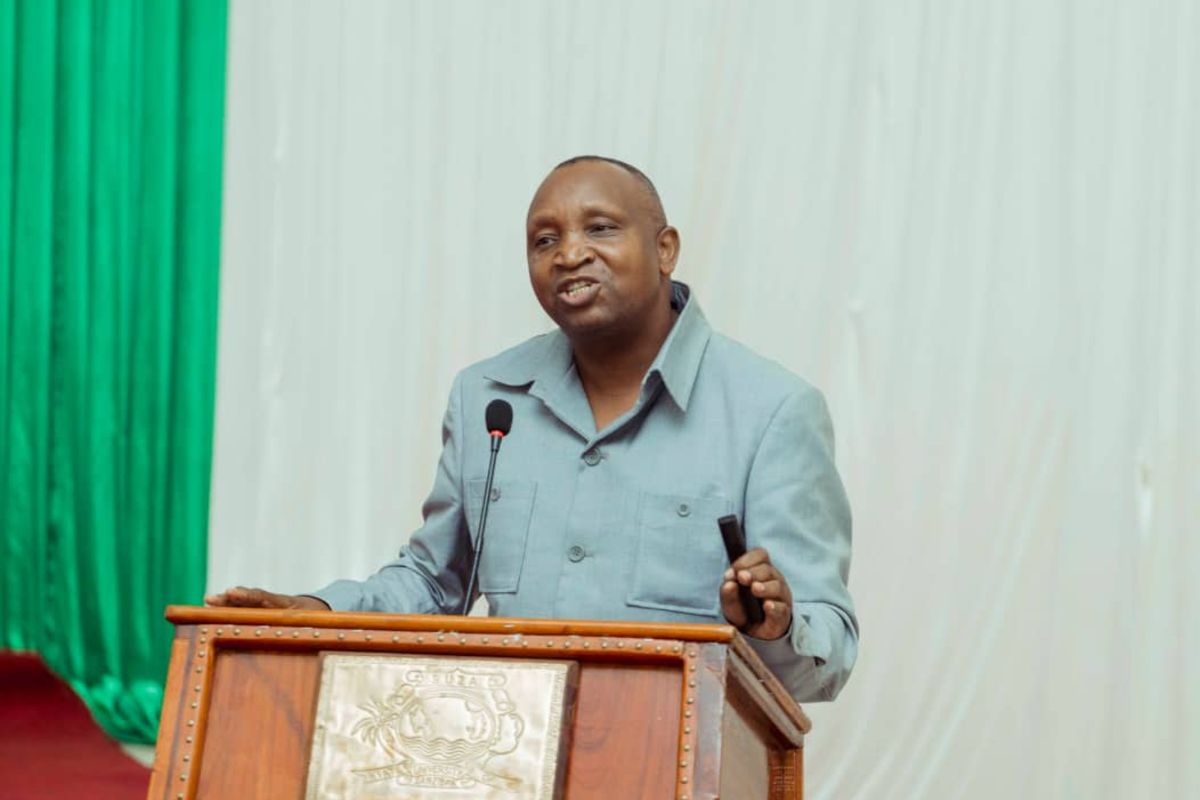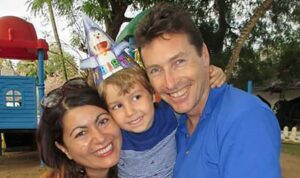Unguja. Wakati Zanzibar ikitimiza miaka 60 ya elimu bila malipo leo Jumatatu, Septemba 23, 2024, wanazuoni na wanataaluma wametoa mapendekezo namna elimu hiyo inavyotakiwa kuboreshwa, ili kuendana na mahitaji ya sasa ya kidunia.
Wamesema bado elimu inayotolewa inamlazimisha mwanafunzi asome kitu gani, badala ya mwanafunzi mwenyewe kuamua anachotaka kusoma, hivyo kuna haja ya kubadilisha mitalaa, isikilize mwanafunzi mahitaji yake.
Hayo yamebainishwa leo wakati wa kongamano la kitaaluma la miaka 60 ya elimu bila malipo lililoandaliwa na Chuo cha Taifa Zanzibar (Suza) na kuwashirikisha wanazuoni, wadau na wataluma wa elimu.
Akizungumza katika kongamano hilo, Balozi Amina Salum Ali amesema moja ya tunu zilizopatikana kisiwani hapo ni elimu bila malipo, kwani viongozi wengi akiwemo mwenyewe amesoma shahada yake ya uzamivu bure.
Hata hivyo, amesema kwa sasa ipo haja kuangaliwa mahitaji ya msingi na vijana kuandaliwa katika ujuzi na namna wanavyoweza kuajiriwa katika soko la kimataifa badala ya kukaririshwa.
“Elimu iendane na mambo tunayotaka kufanya, leo tuna masuala ya bandari, miundombinu yake inapanuka, tunatakiwa kuwasomesha vijana wetu, tunazungumzia mambo ya akili mnemba, teknolojia kukua kwa hiyo tunatakiwa tujipange kuipeleka elimu yetu katika mfumo huo,” amesema Balozi Amin, ambaye ameshika nyidhifa mbalimbali serikalini zikiwamo za uwaziri.
Amesema elimu inatakiwa kushughulikia masuala ya ujuzi na kuondokana na mambo ya zamani: “Tunataka vijana wote wanaotoka Zanzibar wawe na uwezo wa kushindana na wengine wote duniani, tunashukuru tunapata elimu bure, lakini sasa tuongeze iwe na tija zaidi.”
Kwa upande wake, Mhadhiri mwandamizi Chuo Kikuu Huria, Dk Cosmas Mnyanyi amesema licha ya mipango na sera kuitaja elimu kuwa nzuri, lakini changamoto ipo kwenye mitalaa.
“Nilikuwa naangalia taarifa tofauti ni nzuri, mipango mizuri sera nayo nzuri, lakini kuna shida ya mitalaa rekebishi, bado mtu anasoma alichopangiwa sasa tunatakiwa kubadilika mtu asome kitu anachokipenda.
“Siku moja tufanye study ndogo hata kwenye makundi ya WhatsApp uulize wewe hicho unachokisoma unakipenda? Wengi watakwambia, sikipendi nimelazimika. Mtu atakwambia mimi napenda ngoma, napenda kucheza muziki, lakini havipo. Sasa sisi tunakimbilia za muziki za kizungu, kwani sisi hatuna vya kwetu?” amehoji.
Akizungumzia elimu mjumuisho, mwanazuoni huyo amesema lazima mtu awe na ujuzi kusomesha wenye mahitaji maalumu na wasio na mahitaji, kwa hiyo lazima mitaala iseme mwanafunzi anatakiwa kwenda kufanya nini ndio ajifunze.
Amesema kwa Zanzibar angalau imeongelewa kuhusu watu wenye ulemavu, lakini sasa wanasomaje, ilhali hakuna vifaa na maandalizi maalumu kwa ajili yao.
“Tuulizane watu wazima wanaopata ulemavu wanapata usaidizi gani, hata wale watoto wanasoma shuleni, je anapomaliza mazingira ya nje ya shule yameandaliwa vipi kwa ajili yake, haya yote lazima tuyaone,” amesema.
Naye mstaafu katika utumishi wa umma, Abdulla Mzee Abdulla amesema kuna mabadiliko makubwa katika sekta ya elimu tangu yalipotokea Mapinduzi mwaka 1964 ambapo Zanzibar ikikuwa na shule moja ya Maandalizi, shule za msingi 62 na sekondari nne jumla ya wanafunzi wakiwa 25,400 lakini kwa sasa kuna wanafunzi zaidi ya 600,000 wakiwa wanapata elimu bila malipo.
Pia amesema lazima elimu ijikite katika mafunzo ya amali, kwani inampa fursa nzuri mwanafunzi ajiajiri au hata akiajiriwa imsaidie kuwa mahiri katika kazi husika.
Katika mabadiliko hayo, Mzee Abdulla amesema lazima pia kada ya ualimu nayo ibadilike, ili kukidhi sifa zinazohitajika hivyo lazima pia kuwapo na maandalizi ya walimu na wawe tayari kubadilika.
“Mwalimu wa maandalizi na msingi sifa ya kwanza itakuwa ni awe amemaliza kidato cha sita na amefaulu daraja la tatu, mwalimu sekondari lazima awe kidato cha sita daraja la kwanza na la pili, tunafanya hivi kuimarisha sifa na heshima ya mwalimu,” amesema.
Amesema walimu wote watapimwa kupitia Tume ya Walimu na ndio itakayotoa kibali kwamba mtu ana sifa za kuwa mwalimu au hana sifa. Sifa nyingine ya mwalimu lazima ajue Kiigereza na Kiswahili na lugha maalumu kwa watu wenye ulemavu.
Naye Makamu Mkuu wa Suza, Profesa Moh’d Makame Haji amesema zaidi ya miaka 400 Zanzibar ilikosa elimu na ilikuwa inatolewa kwa ubaguzi, kwa hiyo uamuzi wa viongozi kutoa elimu bure ulikuwa wa busara na kusaidia watu wake wapate taaluma.
“Uamuzi huu ulileta ukombozi na kuleta uelewa kwa wananchi hata baada ya kuanzisha Chuo Kikuu cha Taifa mwaka 2001 ilikuwa kuondoa changamoto hii. Sasa tunaona namna gani miaka 60 ya elimu bila malipo imeleta tija kubwa katika maendeleo ya Zanzibar,” amesema.
Suza kina shule tisa za fani mbalimbali, ikiwa na programu 60 na kwa sasa kina wanafunzi zaidi ya 7,000 ikilinganishwa na wanafunzi 54 walioanza nao.
Waziri wa Elimu na Mafunzo ya Amali, Lela Muhamed Mussa amesema Serikali inaendelea kuwekeza katika sekta ya elimu kutoka bajeti ya Sh256 bilioni mwaka 2022/23 hadi Sh830 bilioni mwaka 2023/24.
Mdau wa elimu, Said Ali Said amesema ni bora wanaoandaliwa kuwa walimu waanze kusomea fani husika wakiwa kwenye ngazi za awali, hivyo itakuwa rahisi kuwa mahiri katika ufundishaji.
“Mfano, mwanafunzi akitoka kidato che nne asome masomo ya utalii, aende kidato cha sita asome masomo hayo, kadhalika chuo kikuu na akimaliza arejee kusomesha utalii, hapa ndio tutapa matokeo chanya,” amesema.
Zanzibar ilipata Mapinduzi Januari 12, 1964 na elimu bila malipo ilitangazwa na aliyekuwa Rais wa Kwanza, hayati Abeid Aman Karume Septemba 23, 1964.
Source: mwananchi.co.tz














